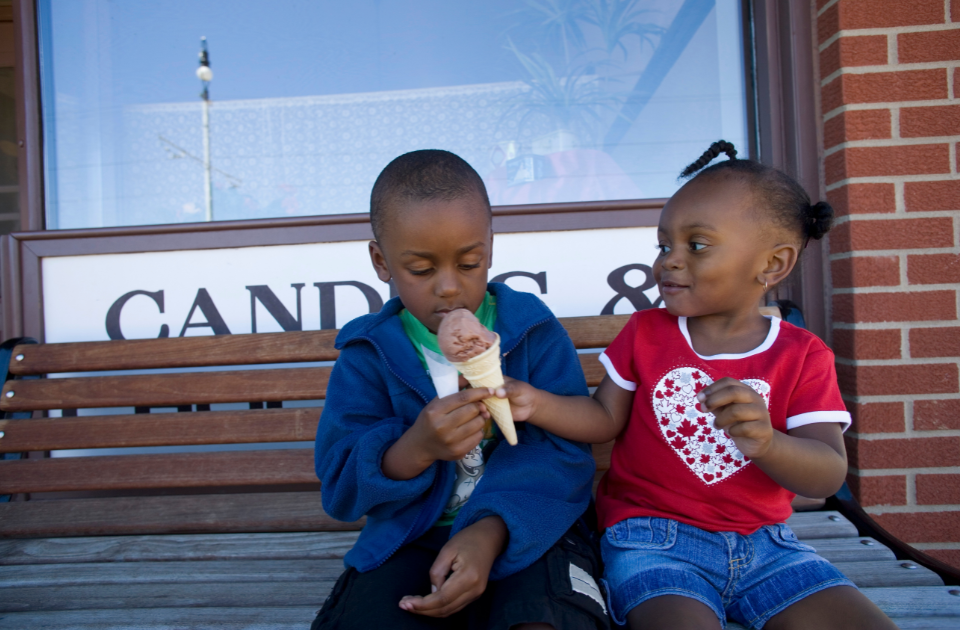Donald Trump said nasty things about Mexicans, so she said, 'Meet my dad.'
Here's the face of undocumented immigrants that people like Donald Trump need to see.
In a recent attempt to make a case against immigration, Donald Trump said some pretty messed-up stuff about Mexicans in his presidential campaign announcement.
“The U.S. has become a dumping ground for everybody else's problems. ... When Mexico sends its people, they're not sending their best. They're not sending you. They're sending people that have lots of problems, and they're bringing those problems with us. They're bringing drugs. They're bringing crime. They're rapists. And some, I assume, are good people."
— Donald Trump
Yikes. The response was swift. Trump lost business partnerships and sponsorships, and he was on the receiving end of tons of public backlash and anger.
But when 28-year old Adriana Almanza heard Trump's comments, she didn't just get angry. She decided to introduce him to her dad.
Adriana's father, Raul, was an undocumented immigrant who, in her mind, more than fit the bill as one of "the best" — the term Trump used to distinguish people he arrogantly decided are "worthy" of being American.
As one does in 2015, Adriana took to Facebook and wrote Trump a letter. The entire letter is a thing of beauty, but below is my favorite excerpt:
"Raul doesn't have what you call a 'formal education'. He left high school early on to work and contribute to the household financially. But that doesn't mean anything. When I was young, I would come home where my dad never hesitated to help me with my homework; he instilled in me the importance of education and a degree, even though he didn't have one. My dad has worked 5-6 days a week since I was a child and I've never heard him complain about it one time. He doesn't drink. He doesn't use drugs. He is certainly not a criminal, rapist, or drug trafficker, as your speech suggested. ...
If my dad is any representation of the type of people Mexico 'sends', there is no doubt in my mind this country is getting the best. The problem is that you and I have a different definition of 'the best'.
I sit here now with a Masters degree and a rewarding career. ... We are not rich in wealth, sir. But we are rich in what matters.. knowledge, culture, & faith. We come from humble beginnings.. and every year we are reminded of that when we travel to Mexico to visit our beautiful family. To us, THAT is what matters."
— Adriana Almanza, "Dear Mr. Trump"
So what qualifies someone as "the best"?
A college degree? A Ph.D.? A white-collar job? Speaking English? Usually (especially in the context of the immigration debate), the term "best" is code for classist and racist stereotypes that not only ignore the beauty of what really matters — hard work, honesty, family values — but also imply that those who aren't in that category take away from rather than add to America.
Adriana could have replied with some of the ways immigrants help the economy, like starting their own businesses. She could have done a historical analysis of all the ways immigrants have helped build this country. Or she could have made a list of the "best and brightest" that have crossed the border and helped make this country what it is today.
Instead, she simply told her father's story in the hope it reaches Trump and reshapes the narrative about Mexico, immigrants, and what it means to be "the best."
If Donald Trump can speak negatively about immigrants in the face of the millions of people just like Raul and Adriana, one thing is clear: He certainly isn't the best that America has to offer.





 An intelligent man's thought process.
An intelligent man's thought process. Kids showing kindness through sharing.
Kids showing kindness through sharing.  Children believe that conversations between adults are more “authentic” and honest.
Children believe that conversations between adults are more “authentic” and honest. A "girl gang" in 1976. via
A "girl gang" in 1976. via  GIrls in class in the 1960s.via
GIrls in class in the 1960s.via  An older woman looking at a laptop.via
An older woman looking at a laptop.via A young mom who's exhausted.via
A young mom who's exhausted.via From CBS' 'Seal Team'
From CBS' 'Seal Team' "It sucks to realize that just being naturally energetic, jolly, friendly, and boisterous intimidates smaller/more timid people when you're a guy.”
"It sucks to realize that just being naturally energetic, jolly, friendly, and boisterous intimidates smaller/more timid people when you're a guy.” Two men hugging
Two men hugging